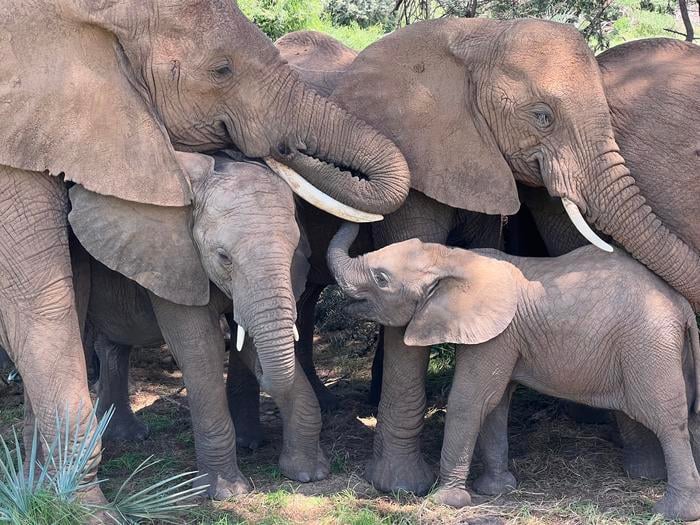In the wilds of Africa, elephants are having conversations, and scientists are finally understanding what they’re saying. A new study published in Nature Ecology and Evolution has found that these majestic animals use distinct calls to address each other by name, a rare ability among nonhuman species.
Researchers from Colorado State University, Save the Elephants, and ElephantVoices used machine learning to analyze hundreds of elephant calls recorded over four years in Kenya. The results confirmed what the scientists had long suspected: the calls contained a name-like component identifying the intended recipient.
“Dolphins and parrots call one another by ‘name’ by imitating the signature call of the addressee,” said lead author Michael Pardo, who conducted the study as an NSF postdoctoral researcher at CSU and Save the Elephants. “By contrast, our data suggest that elephants do not rely on imitation of the receiver’s calls to address one another, which is more similar to the way in which human names work.”
Elephants and Humans Share Complex Social Structures
Despite diverging tens of millions of years ago, elephants and humans have evolved to function within similar social networks. Both species live in complex social structures, with elephants forming family units and larger clan structures akin to human communities.
The researchers propose that these similar social pressures likely drove the development of arbitrary vocal labeling—the naming of other individuals with abstract sounds—in both elephants and humans.
“It’s probably a case where we have similar pressures, largely from complex social interactions,” said co-author George Wittemyer, a professor in CSU’s Warner College of Natural Resources and chairman of the scientific board of Save the Elephants. “That’s one of the exciting things about this study, it gives us some insight into possible drivers of why we evolved these abilities.”
Elephants Respond to Their Names
To test their hypothesis, the researchers played back recorded calls to the elephants. The animals responded affirmatively to calls addressed to them by calling back or approaching the speaker, while calls meant for other elephants received less of a reaction.
“Unfortunately, we can’t have them speak into microphones,” Wittemyer said, noting the barriers to collecting sufficient data.
The study also found that, like humans, elephants don’t always address each other by name in conversation. Calling an individual by name was more common over long distances or when adults were talking to calves.
The ability to learn and produce new sounds, a uncommon trait among animals, is necessary for identifying individuals by name. This arbitrary communication, where a sound represents an idea but does not imitate it, greatly expands communication capability and is considered a next-level cognitive skill.
The new insights into elephant cognition and communication revealed by the study strengthen the case for their conservation. Classified as endangered due to poaching and habitat loss, elephants require vast spaces and can be destructive to property and hazardous to people.
While conversing with pachyderms remains a distant dream, Wittemyer believes that being able to communicate with them could be a gamechanger for their protection. “I’d like to be able to warn them, ‘Do not come here. You’re going to be killed if you come here.'”


